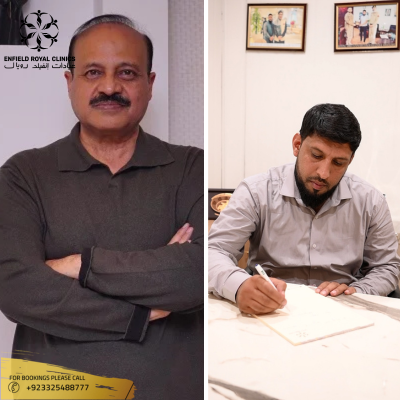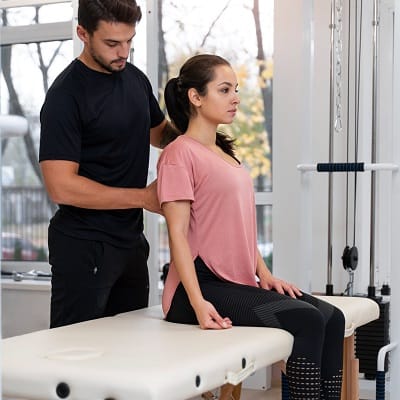
Whether short or long-term, pain may make it challenging to go about everyday chores and damage your general well-being. Further, many people also decide on drugs or surgery to ease their agony. Still, one more choice free from medicines or surgery is exercise. Moreover, to help find the causes of pain, they suggest exercises, recovery remedies, electrotherapy, and lifestyle changes.
After surgical treatment, Physiotherapy may also help with chronic aches, stiff joints, muscle accidents, and other injuries. Moreover, it might improve long-term performance. Hence, How Do Physiotherapists Treat Pain? Physiotherapists treat pain in multiple ways.
Common Causes of Pain Treated by Physiotherapists:
Treating the following kinds of pain, physiotherapists use:
Physiotherapists assist individuals suffering from a variety of pain types, including:
- Muscular soreness and strains may result from utilizing muscles too much, poor posture, or fast injury.
- Arthritis includes knee, hip, and shoulder pain and joint aches.
- Usually caused by either improper posture, sciatica, or disks that have bulged out, back and neck discomfort results.
- Sports injuries include tendinitis, damaged ligaments, and shattered bones.
- Following surgery, it facilitates faster physical recovery and restoration of mobility.
- Nerve ache—also referred to as neuropathy—can be brought on by sciatica, carpal tunnel, or diabetic neuropathy.
By understanding the purpose of the pain, physiotherapists may also develop specific treatment plans to comfort the patient for a long time.
How Do Physiotherapists Treat Pain?
One versatile approach to relieve discomfort and assist in people’s recovery is physiotherapy. However, How Do Physiotherapists Treat Pain? Hence, among the finest ways to alleviate pain are these:
Manual Therapy (Hands-On Techniques):
- Massage Therapy relieves tense muscles, boosts blood flow, and calms you.
- This lowers pain and improves joint flexibility via joint mobilization and manipulation.
- This technique, soft tissue mobilization, dissolves scar tissue and promotes mobility.
- Trigger Point Therapy is a method that helps specific muscle knots to loosen by.
Hence, it is best for extended muscular pain, restricted motion, and stiff joints.
Therapeutic Exercises & Stretching:
- Stronger muscles brought up by strength training protect joints and stop deterioration.
- Exercises for flexibility improve the range of motion and help to lower stiffness.
- Core stabilization exercises help strengthen your back and abdomen, therefore correcting your posture.
- Training in balance and coordination enables you to keep from falling and promotes mobility.
So, it is ideal for sciatica and lower back discomfort. Also, it helps in joint discomfort with arthritis and recovery after an accident.
Electrotherapy (Pain-Relief Machines):
- The small electrical shocks used in TENS, or transcutaneous electrical nerve stimulation, help block pain impulses and promote physical recovery.
- Ultrasound therapy is a means of helping deep tissues heal by the use of sound waves.
- Shockwave treatment increases blood flow, therefore lessening muscle and joint pain.
- Laser therapy addresses pain management, muscle repair, and inflammation.
This approach is recommended for sports injuries and long-term arthritic or fibromyalgia pain. It also benefits sciatica and nerve pain.
Heat & Cold Therapy:
- Heat remedy speeds up blood flow, relaxes muscle mass, and helps to relieve stiffness.
- Cryotherapy, or cold therapy, is a freezing treatment to lower edema, inflammation, and aches.
Acupuncture and dry needle treatment:
- Dry needle targets tight and unpleasant muscular regions and release pain and tension.
- Through stimulation of some bodily regions, acupuncture reduces edema and chronic pain.
It also addresses long-term muscle pain, sciatica, nerve irritation, migraines, and headaches.
How Long Does Physiotherapy Take to Relieve Pain?
- Three to five sessions are required for minor discomfort or muscular tension.
- Moreover, those with persistent pain may require 8–12 rounds.
- Furthermore, following surgery or an injury may take a few weeks to several months.
- However, a person’s recovery speed will depend on their health and degree of treatment consistency.
Benefits of Physiotherapy for Pain Relief:
- Improves Mobility & Flexibility: Restores your range of motion; makes you more mobile and adaptable.
- Strengthens Muscles: It builds muscles and prevents their repeated injury.
- Boosts Recovery: It aids in recovery after surgery or an accident and increases enjoyment of everyday activities.
- Enhances Life Quality: Physiotherapy enables individuals to live pain-free and restore their lives to order.
Best Physiotherapy Clinic for Pain Treatment in Islamabad:
RCS-PK is the leading physiotherapy & rehabilitation center in Islamabad for the best and expert pain-relieving therapies. Moreover, the clinic has certified physiotherapists with extensive expertise on board. Furthermore, we offer customized pain management strategies.
Also, the clinic is equipped with the most modern physiotherapy instruments and approaches. Therefore, we have been proven to cure long-term and temporary pain. So, we at RCS-PK provide a broad spectrum of physiotherapy treatments to enable individuals to recover safely and effectively.
Final Thoughts:
Physiotherapy is a secure, realistic, lengthy-time period answer for every body experiencing mobility troubles, accidents, or ongoing soreness. Through various treatments, sports, and greater superior techniques, physiotherapists additionally assist their patients to transport with out pain and improve their popular fitness. Moreover, you may touch a knowledgeable trainer who can design a specific plan to manage your pain as an alternative of medicine or surgical operation.
Make an appointment with our expert physiotherapists at RCS-PK to start your pain relief process! You can contact us or visit our clinic on the 3rd Floor, Ammar Center Jinnah Super Market, F-7 Markaz, Islamabad, Pakistan.






